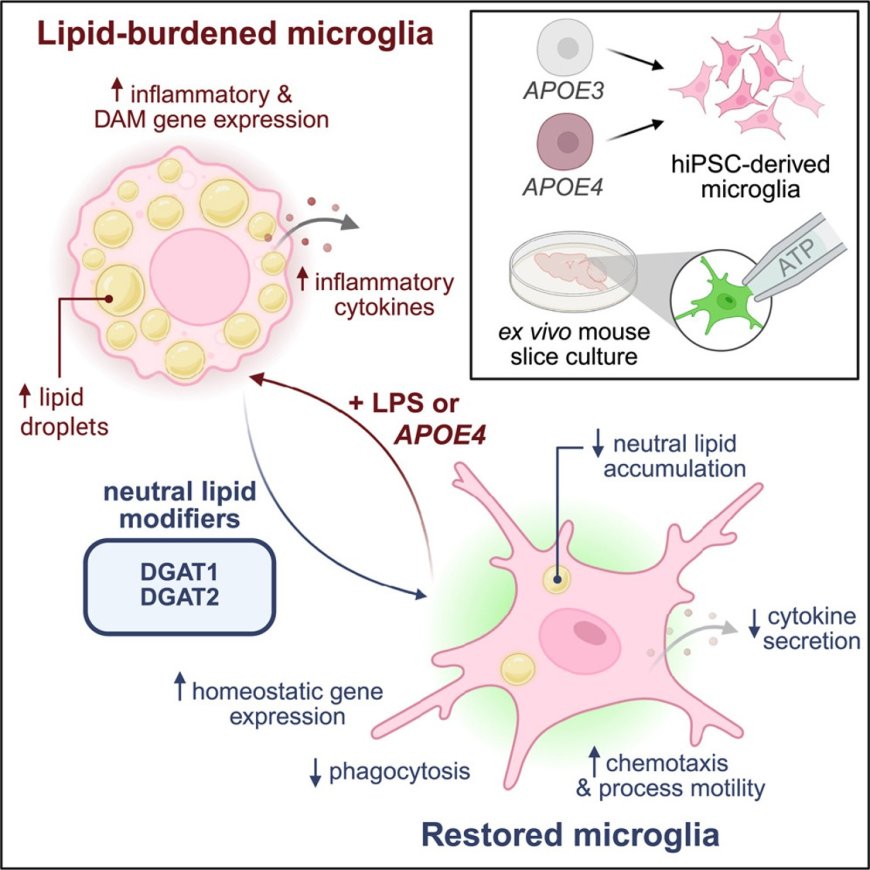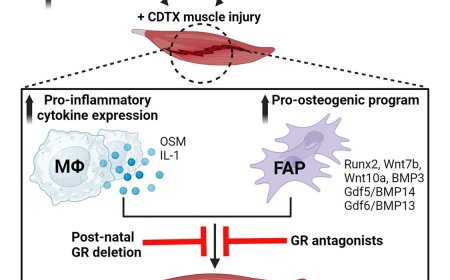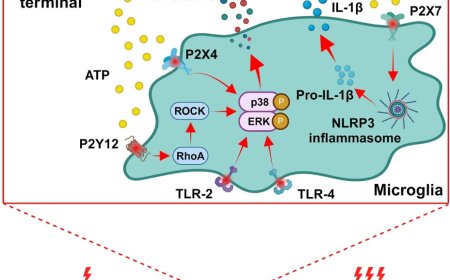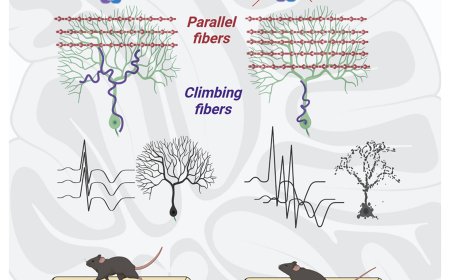Triglyceride metabolism controls Alzheimer’s associated microglial phenotypes and inflammation

Neuroinflammation is central to Alzheimer’s disease (AD) pathogenesis and microglia plays a crucial role in AD..
Lipids are known to modulate microglia but the functional significance of these metabolic changes remains poorly understood.
The researchers establish that neutral lipid accumulation is necessary for microglial activation and that microglia expressing an Alzheimer’s risk gene (APOE4) hijack triglyceride biosynthesis to acquire a basal immune activated state.
Targeting triglyceride metabolism can modulate immune reactivity and disease phenotypes. In microglia harboring the Alzheimer’s disease risk APOE4 genotype, inhibiting triglyceride biosynthesis attenuates disease-associated transcriptional states.
https://www.cell.com/cell-reports/fulltext/S2211-1247(25)00732-6
https://sciencemission.com/Triglyceride-metabolism-controls-inflammation













